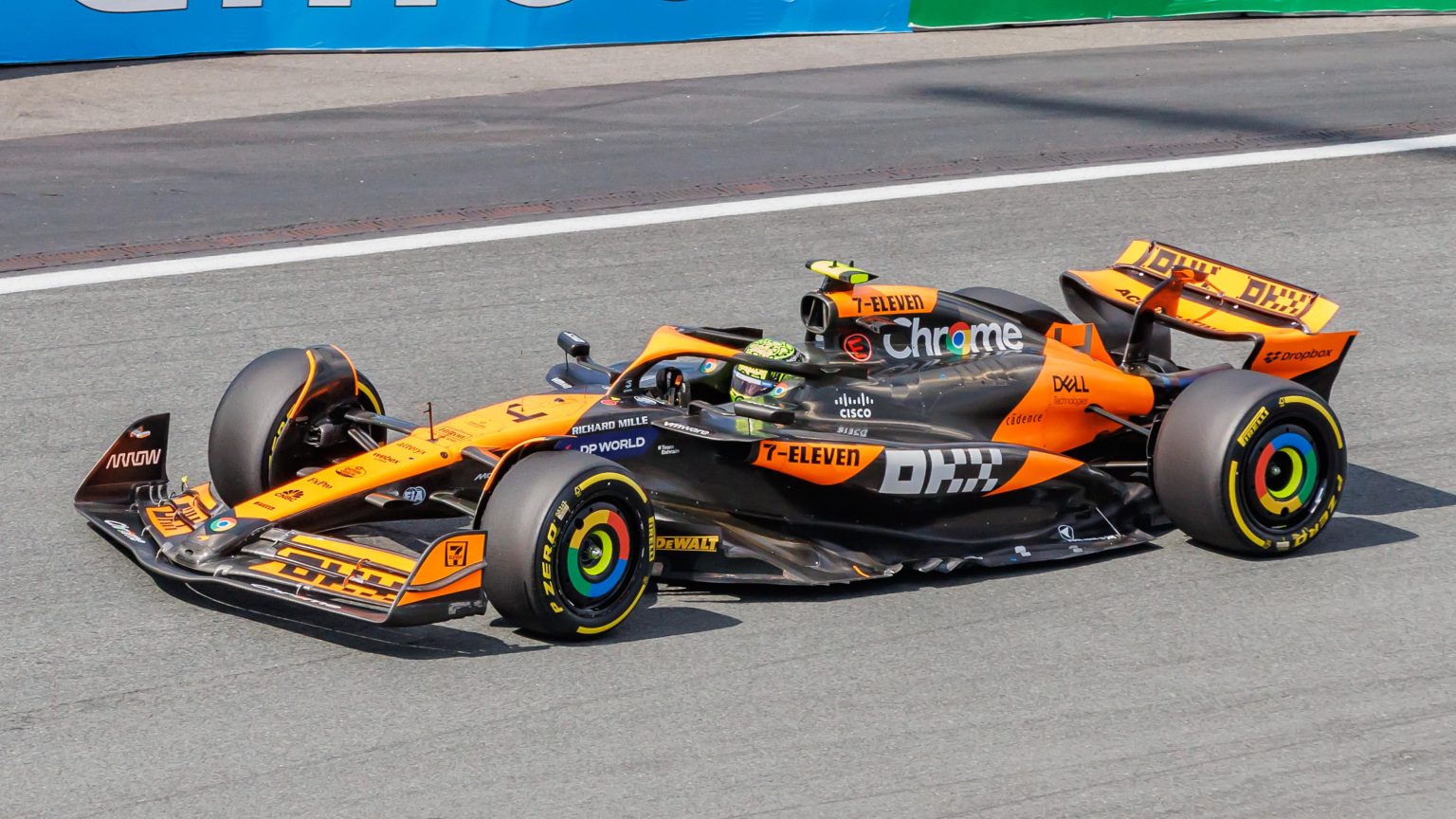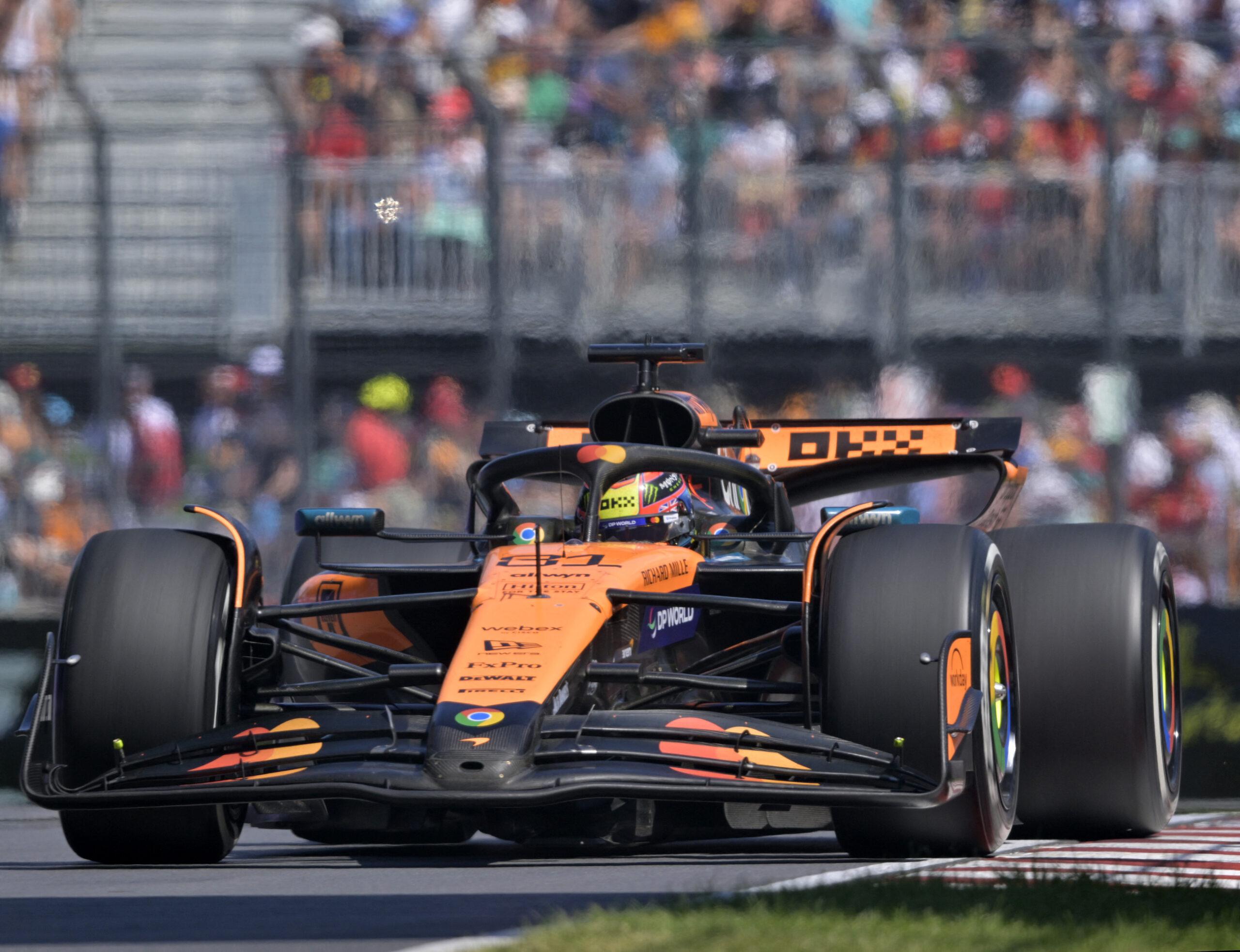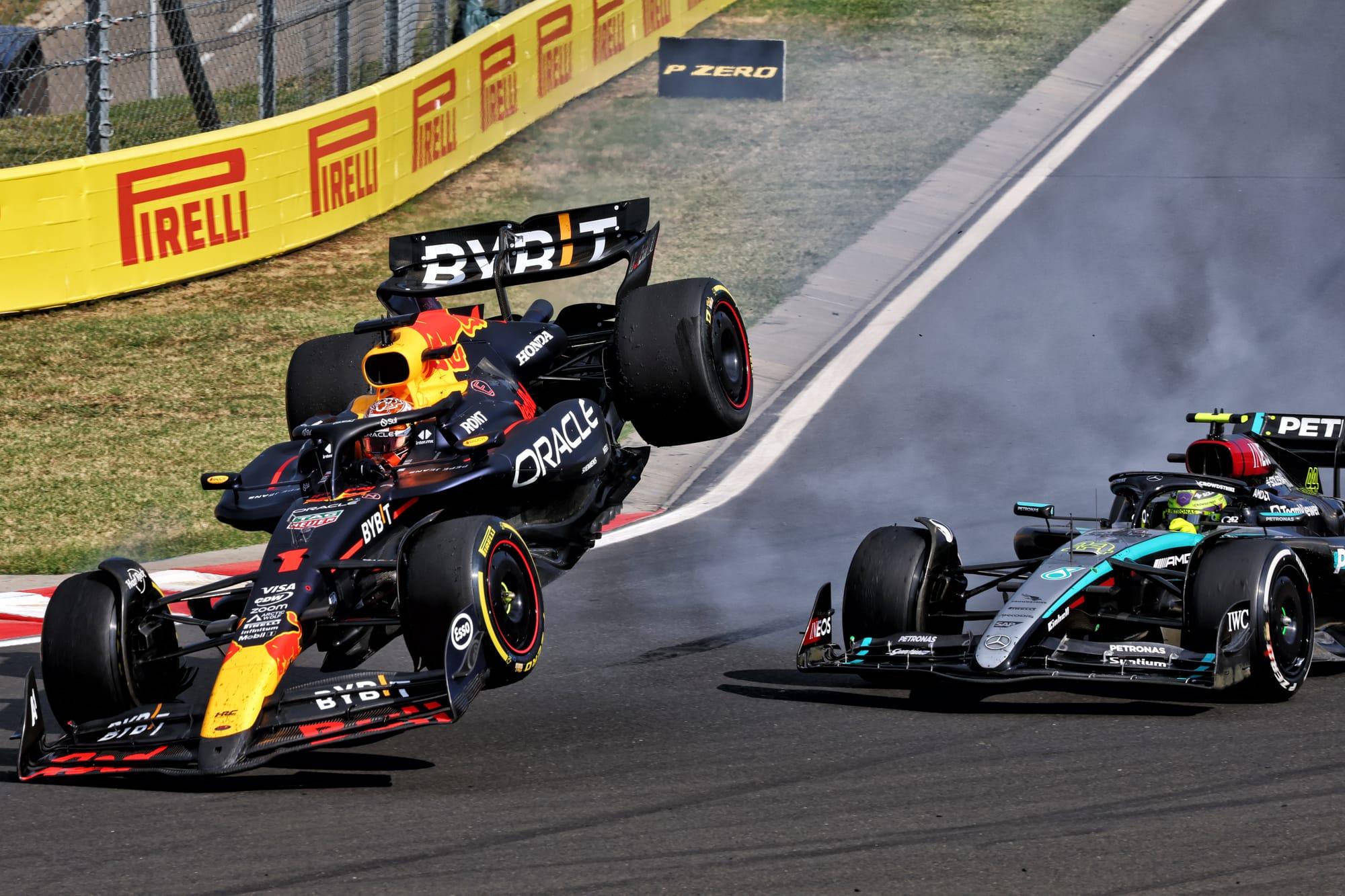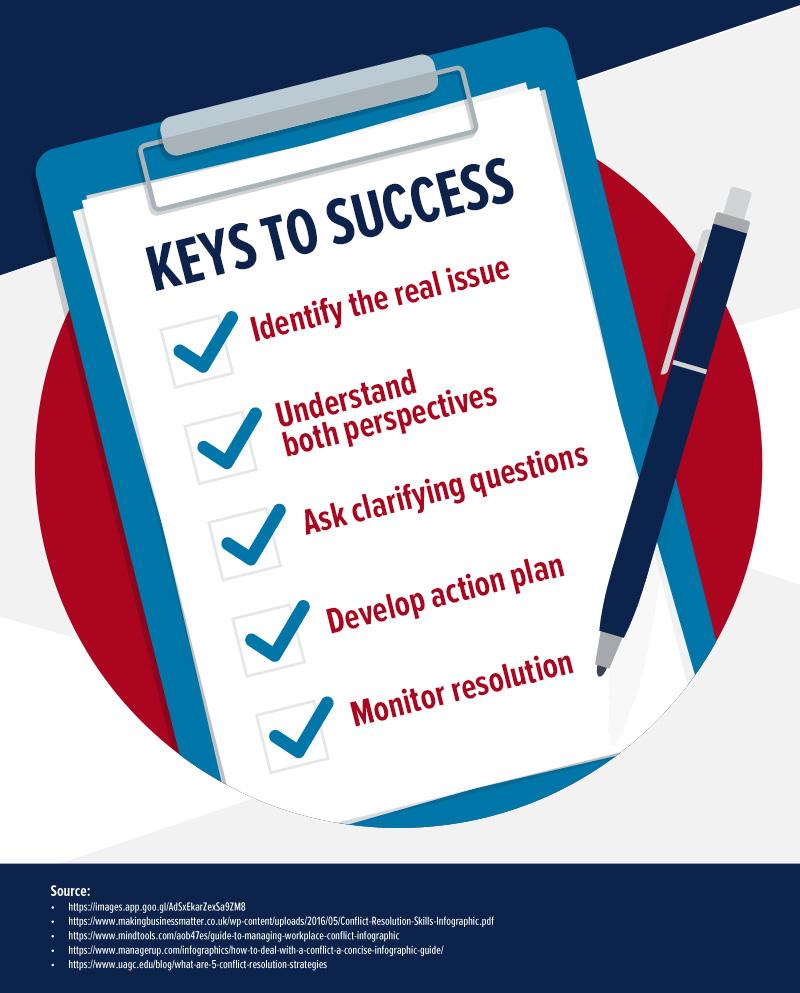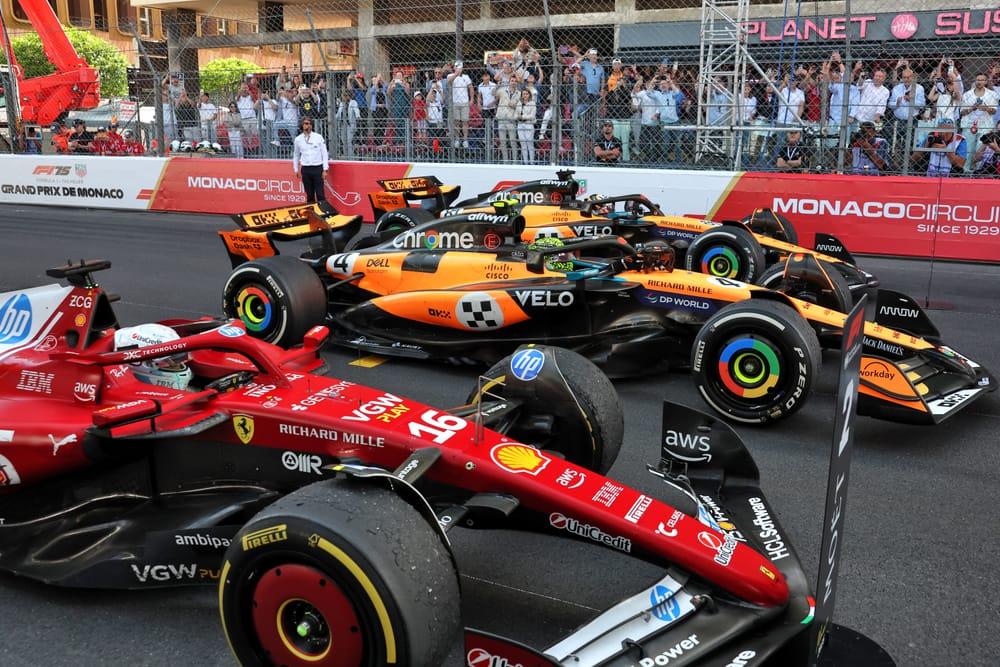In the high-octane world of Formula 1, where precision and split-second decisions define victory, even the most finely tuned teams can encounter internal turbulence. McLaren, a stalwart on the grid, now finds itself navigating the rocky aftermath of a dramatic clash between its rising stars, Lando Norris and Oscar Piastri. As tensions simmer and questions abound, the team calls for ‘better judgement’ to steer through the fallout-seeking not only to protect its reputation but to harness the competitive spark within. This incident marks a pivotal moment for McLaren, challenging the balance between collaboration and rivalry in the quest for racing glory.
McLaren Calls for Enhanced Communication Standards in Driver Dynamics
In the wake of the intense on-track incident between Lando Norris and Oscar Piastri, McLaren has underscored the critical need for improved communication channels and clearer protocols when it comes to driver interactions during races. The team believes that fostering a culture of better judgement and mutual respect could significantly reduce such clashes, which not only jeopardize race outcomes but also team harmony. By advocating for enhanced standards, McLaren is pushing for a more structured approach where real-time information exchange and anticipatory decision-making play pivotal roles.
Among the key areas highlighted for improvement are:
- Clearer pre-race strategies: Defining overtaking rights and defensive tactics to avoid ambiguous situations.
- Instantaneous race communication: Utilizing advanced telemetry to give both drivers timely updates and guidance.
- Post-incident analyses: Constructive debriefs that emphasize learning and preventing repeat incidents rather than assigning blame.
McLaren’s call is not just about minimizing collisions but also cultivating an environment where drivers have the confidence to make swift yet sound decisions, respecting both their teammates and the sport’s integrity.
Examining the Impact of On-Track Clashes on Team Cohesion and Performance
On-track incidents such as the collision between Lando Norris and Oscar Piastri don’t just affect race outcomes-they ripple through the very fabric of a team’s dynamics. When teammates clash under high-pressure situations, trust and mutual respect can be tested, often leading to internal friction. It’s evident that McLaren recognizes this delicate balance, emphasizing the need for better judgment to ensure that competitive spirits don’t undermine collective goals. These clashes risk disrupting communication channels and can inhibit the seamless coordination that top-tier racing demands.
To safeguard their standing, McLaren will likely focus on several key aspects to restore and maintain harmony within the squad:
- Clear communication protocols: Strengthening open dialogue to clarify expectations and reduce misunderstandings.
- Conflict resolution strategies: Implementing structured frameworks to address grievances constructively.
- Shared performance objectives: Aligning both drivers’ ambitions with the team’s overarching targets to foster unity.
By honing in on these areas, McLaren is not only aiming to mitigate the fallout from individual collisions but also to create an environment where cooperation prevails, ultimately boosting overall performance on the track.
Strategic Recommendations for Conflict Resolution within High-Stakes Racing Environments
In the fiercely competitive world of Formula 1, where split-second decisions can define careers, fostering an environment that champions clear communication and mutual respect among teammates is essential. Teams like McLaren must implement robust conflict resolution frameworks that go beyond immediate race incidents, encouraging drivers and engineers to debrief thoroughly, align on race strategies, and cultivate psychological safety. This approach not only curbs on-track tension but also promotes a culture where learning from clashes becomes a strategic advantage rather than a source of internal discord.
Key recommendations include:
- Structured Communication Protocols: Establish pre-race agreements outlining overtaking etiquette and team priority scenarios.
- Mediation and Neutral Facilitators: Utilize third-party specialists to impartially analyze incidents and mediate discussions.
- Emotional Intelligence Training: Provide drivers and staff with tools to manage stress and interpret teammate behavior constructively.
- Transparent Decision-Making: Foster openness in adjudicating incidents to build trust and reinforce accountability within the team.
Building a Culture of Mutual Respect and Judgement for Future Success
At the heart of any high-performing team lies a foundation where mutual respect is not just encouraged but expected. For McLaren, fostering an environment where drivers and crew members communicate openly and constructively is paramount to overcoming internal conflicts such as the recent clash between Lando Norris and Oscar Piastri. Emphasizing better judgement means instilling the ability to evaluate situations with emotional intelligence, restraint, and an eye toward collective success rather than individual victories.
Building this culture involves practical steps that can be embraced both on and off the track:
- Active listening: Understanding each team member’s perspective before reacting.
- Constructive feedback: Offering criticism that builds rather than breaks.
- Shared goals: Aligning ambitions so competition catalyzes progress without causing division.
- Conflict resolution training: Equipping everyone with tools to handle disagreements professionally.
By championing these principles, McLaren aims to create an atmosphere where respect and sound judgement lead not only to harmonious relationships but also future victories that resonate beyond the racetrack.
As the dust settles on the heated on-track clash between Lando Norris and Oscar Piastri, McLaren faces a pivotal moment of reflection. Beyond the split seconds of racing intensity lies a deeper call for “better judgement” – not just from their drivers, but throughout the entire team ethos. In the relentless pursuit of excellence, it is this blend of precision, trust, and strategic foresight that will ultimately define McLaren’s path forward. For in the high-stakes theater of Formula 1, raw talent must be matched by wisdom, ensuring that fierce competition inside the car never undermines the unity and success that lie beyond the pit wall.


